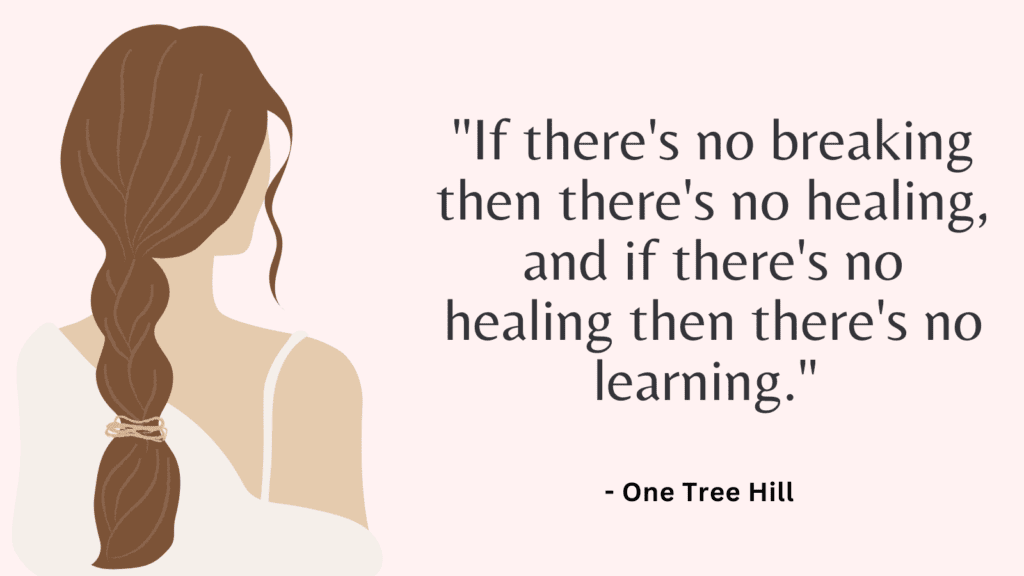In this post, you’ll learn how to deal with helicopter parents.
What Are Helicopter Parents?
Helicopter parents are parents who are overly protective and involved in their children’s lives, often to the point of being intrusive or controlling.
They hover over their children, constantly monitoring their activities, making decisions for them, and shielding them from any kind of harm, real or imagined.
These parents may be well-meaning, but their behavior can have negative effects on their children’s social and emotional development, as it can lead to a lack of independence and self-confidence.
Related: Top 10 Signs Of Toxic Shame In A Person (+Best 20 Healing Shame Exercises)
Why Helicopter Parents Can Be Difficult To Deal With
Helicopter parents can be difficult to deal with because they often have a hard time letting go of their children and allowing them to make their own decisions and mistakes.
As an adult, you may feel that you are capable of making your own choices and handling your own responsibilities, but your helicopter parents may try to control your life by constantly monitoring your actions, offering unsolicited advice, or pressuring you to follow their expectations.
This can be frustrating and can strain your relationship with your parents.
You might also feel like you are not being treated as an independent adult, which can make it difficult for you to establish your own identity and take charge of your own life.
However, it’s important to remember that your parents’ behavior comes from a place of love and concern for your well-being, even if their methods may be misguided or overbearing.
Related: Toxic Shame Quiz
Symptoms of Helicopter Parents
Some common symptoms of helicopter parents include:
1. Constantly checking up on their child: Helicopter parents may call or text their child multiple times a day to check on what they’re doing, where they are, and who they’re with.
2. Overprotectiveness: Helicopter parents may be excessively worried about their child’s safety and well-being, and may take steps to prevent them from taking risks or experiencing failure.
3. Micromanagement: Helicopter parents may be overly involved in their child’s academic or extracurricular activities, often dictating what classes or sports they should take and how they should perform.
4. Lack of boundaries: Helicopter parents may have difficulty letting go of their child as they grow older, and may continue to intervene in their adult lives.
5. Difficulty coping with their child’s independence: Helicopter parents may struggle when their child begins to assert their own independence, and may become controlling or critical.
Related: Inner Teenager Healing: 14 Proven Exercises to Heal Your Inner Teenager
Effects of Helicopter Parenting
Helicopter parents tend to be overly involved in their children’s lives and activities, often hovering over them like a helicopter would.
While this approach may come from a place of good intention, it can have negative effects on children.
1. Lack of self-confidence: Helicopter parenting can leave adults feeling insecure and lacking in confidence because they have never been given the opportunity to take risks and learn from their mistakes.
2. Poor decision-making skills: Adults who were overprotected may struggle to make decisions on their own because they have always relied on their parents to make decisions for them.
3. Perfectionism: Helicopter parents often have high expectations for their children, which can lead to a fear of failure in adulthood. This fear can manifest as perfectionism, which can be stressful and limiting.
4. Anxiety and depression: Over-involved parents can cause their children to develop anxiety and depressive symptoms in adulthood by instilling an exaggerated sense of danger and risk avoidance in them.
5. Difficulty with relationships: Helicopter parenting can affect adult relationships, causing difficulty with intimacy or trust because individuals may struggle to make independent decisions and commitments and may lack the emotional resilience needed to navigate ups and downs in relationships.
It is important to note that not all individuals who experienced helicopter parenting will experience the above-mentioned effects.
However, research has shown that helicopter parenting can have long-term consequences on the psychological well-being and success of individuals.
Related: Best 20 Tips On How To Let Go Of Perfectionism
How To Deal With Helicopter Parents?
#1. Acknowledge Their Concerns
When dealing with helicopter parents, it’s important to acknowledge their concerns.
Helicopter parents can often be overprotective and anxious about your well-being, but it’s important to remember that their intentions come from a place of love and care.
When communicating with helicopter parents, actively listen to their concerns and show empathy. Let them know that you understand their worries and that you share the goal of ensuring your success and safety.
Acknowledging their concerns can also help build trust and establish an open line of communication.
Related: Top 5 Tips On How To Be Assertive Without Being Rude
#2. Set Boundaries
Setting boundaries is an important part of dealing with helicopter parents. Here are some tips on how to set boundaries:
1. Identify your boundaries: Reflect on what behaviors or actions from your parents make you uncomfortable or stressed. These could be anything from frequent phone calls to intrusive questions about your personal life.
2. Communicate your boundaries: Once you have identified your boundaries, communicate them clearly and respectfully to your parents. Be honest but kind, and explain why these boundaries are important to you.
3. Stick to your boundaries: It can be tempting to give in and allow your parents to cross your boundaries, but it’s essential to stick to them. Be firm but polite when reiterating your boundaries.
Remember, setting boundaries isn’t about punishing or pushing your parents away.
It’s about creating a healthy dynamic that respects your needs and feelings while also respecting your parents’ feelings.
Related: Healthy Boundaries Quiz (+Free Pdf Worksheets)
#3. Find Your Own Identity
Finding your own identity can be a challenging but rewarding process. Here are some steps to help you:
1. Recognize the impact of your upbringing: It’s important to acknowledge the influence your parents have had on your life and personality. Understanding this will help you to identify areas where you want to break away and create your own identity.
2. Explore your interests and passions: Take time to explore things that interest you. Whether it’s a new hobby, exercise, or career path, diving into something you’re passionate about can help you discover more about yourself.
3. Take risks: To find your own identity, you need to be willing to take risks and step outside your comfort zone. This could mean trying new things or putting yourself in unfamiliar situations.
4. Connect with different people: Make an effort to meet people from diverse backgrounds and experiences. This will broaden your perspective and help you understand your place in the world.
5. Embrace your uniqueness: Finally, remember to embrace your unique characteristics and quirks. Rather than trying to fit into a particular mold, focus on developing your own individuality.
Related: How To Start A Self Love Journey? Top 10 Powerful Ways to Love Yourself More
#4. Practice Self-Care
Here are some tips on how to take care of yourself:
1. Allow yourself to feel your emotions: You may feel angry, sad, or even guilty for breaking free from your parents’ control. It is important to allow yourself to feel these emotions and process them.
2. Practice self-compassion: Be kind to yourself, and show yourself understanding and forgiveness. Remind yourself that you deserve to be happy and make your own decisions.
3. Engage in self-care activities: Do things that make you feel good, whether it’s reading a book, taking a bath, or going for a walk. Prioritize activities that help you relax and recharge.
Self-care is an ongoing process. Continue to check in with yourself and make adjustments as needed. You deserve to live a life free from control and full of happiness.
Related: Top 9 Sustainable Self Care Products
#5. Seek Support
Dealing with helicopter parents can be challenging and overwhelming, and seeking support can be incredibly helpful in navigating this situation.
Here are some suggestions:
1. Talk to a trusted friend or family member: Having a support system is essential when dealing with difficult situations. Talking with someone you trust can help you process your feelings and gain perspective on the situation.
2. Consider seeing a therapist: A therapist can provide a safe and supportive space for you to explore your feelings, help you set boundaries, and develop coping strategies.
3. Join a support group: There are many online and in-person support groups for people dealing with controlling parents. Meeting others who are going through similar experiences can help you feel less alone and give you ideas for how to cope.
Remember, seeking support is a sign of strength, not weakness. It is okay to ask for help when dealing with difficult situations.

Conclusion
Helicopter parenting refers to a style of parenting where a parent is overly involved in their child’s life and tends to hover or “helicopter” over them, constantly monitoring and controlling their activities.
Helicopter parenting can leave lasting effects on individuals as they grow up and try to navigate the world on their own.
It’s important to remember that healing is a process, and it may take time to overcome the challenges that come with having overbearing parents.
FAQ
Is Helicopter Parenting Abuse?
Helicopter parenting is not necessarily abuse, but it can be detrimental to a child’s development and sense of autonomy.
Helicopter parenting involves over-controlling and micro-managing a child’s life, which can lead to the child being overly dependent and lacking in self-confidence.
However, if helicopter parenting includes emotional or physical abuse, it can be considered abusive.



